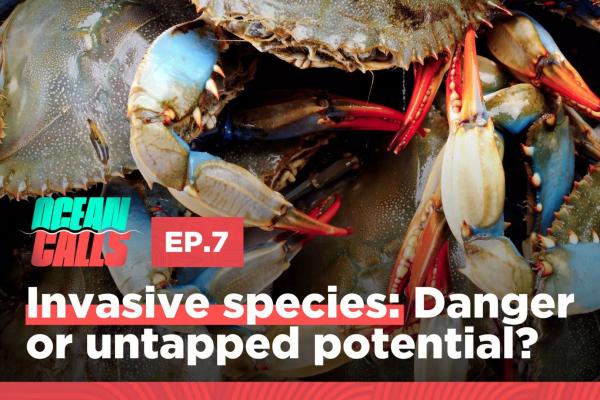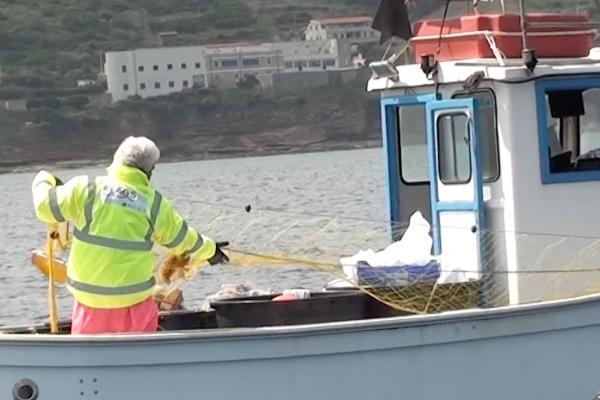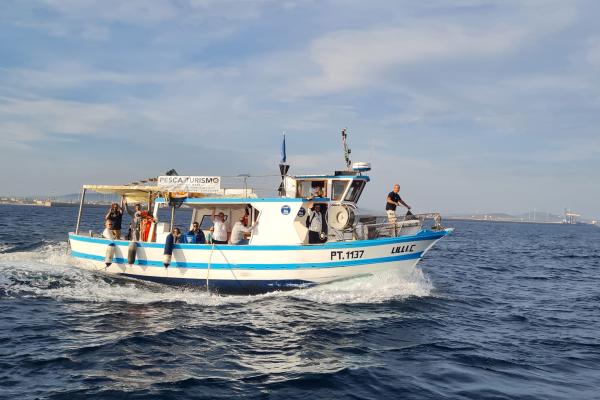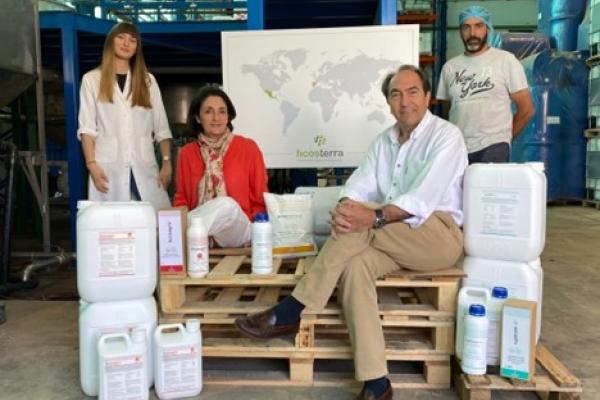
In Europe, seaweed farming is not exploited to its full potential, due to the usually small scale of the enterprises, the limited number of seaweed species and traditional growing techniques. The EU-funded AlgaeDemo project aims to demonstrate large-scale, sustainable industrial cultivation of selected seaweed species at open sea.
The European seaweed sector: still an immature industry
In the EU, most seaweed farms are typically small, manually cultivating a limited number of seaweed species on traditional rope systems in sheltered areas. As a result, most of the seaweeds available in the European market are imported from Asia. The relative underdevelopment of this industry leaves plenty room for a strong growth of seaweed production in European waters, as this sector has a high potential with emerging new fields of application (food and feed, bioactives, biomaterials and bioenergy, etc.). The ALGAEDEMO project, with the support of the European Maritime Fisheries and Aquaculture Fund (EMFAF) proposes to make seaweed cultivation a viable economic activity, bringing it to an industrial and commercial scale, while ensuring the sustainability of the industry.
AlgaeDemo: cultivating 1.4 hectares of seaweed in the North Sea
Operating in the North Sea, specifically in the Oosterschelde in the Netherlands, AlgaeDemo demonstrates that the deployment, operation and testing of a large-scale seaweed farm is a viable economic model.
In first place, the right cultivar for the location was selected, then mechanically seeded and will be harvested on advanced large-scale textile cultivation substrates. By applying a state-of-the-art Autonomous Underwater Vehicle (AUV) for monitoring the macroalgae growth and anchoring conditions, a largely automated and highly reliable seaweed farm is built to reduce costs, risk to people and property and contribute to a healthier ocean.
Key drivers to make the sector more profitable and competitive are
- technologies such as technical textiles, on which seaweeds are cultivated
- advanced marine technologies such as automated cleaning/seeding/harvesting modules with Autonomous Underwater Vehicles (AUVs)
- open sea solid mooring/anchoring techniques
Last but not least, AlgaeDemo illustrates the positive ecological effects of large scale seaweed farming, as seaweed captures CO2, phosphates and nitrates, thus contributing to more healthy oceans.
Generating jobs and growth
AlgaeDemo fosters an entire seaweed value chain, from seaweed to end-product users, with coastal regions being able to generate new jobs, as potential application domains are vast (food and feed, packaging industries, bio energy or biochemistry, etc.). In the future, seaweed cultivation will become increasingly important, with a high potential for growth and job creation. In fact, improved market readiness will attract European industry actors to invest in this new profitable sector.
ALGAEDEMO will bring sustainable seaweed farming to the next level by integrating seaweed’s ecosystem services
points out Bert Groenendaal – of Dutch Seaweed Group – the coordinator of the project.
Moreover this project can be replicated in all the regions where seaweed farming is established and where open water seaweed cultivation is possible, such as the west coast of France, the UK, or Belgium.
AlgaeDemo is also in line with the objectives of the EU Blue Economy strategy, boosting seaweed farms businesses across EU open waters, in the context of sustainable, clean and healthy oceans.
Did you like this story?
Then check out the October episode of Euronews OCEAN 'Blue revolution': How farmed seaweed is good for us and the planet
Keep informed about the project
Website
Details
- Publication date
- 25 October 2022
- Author
- Directorate-General for Maritime Affairs and Fisheries




